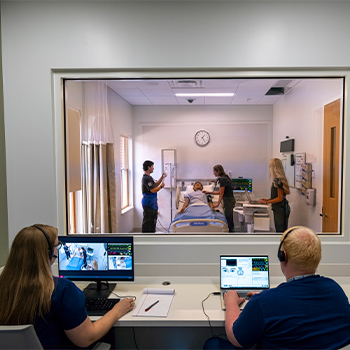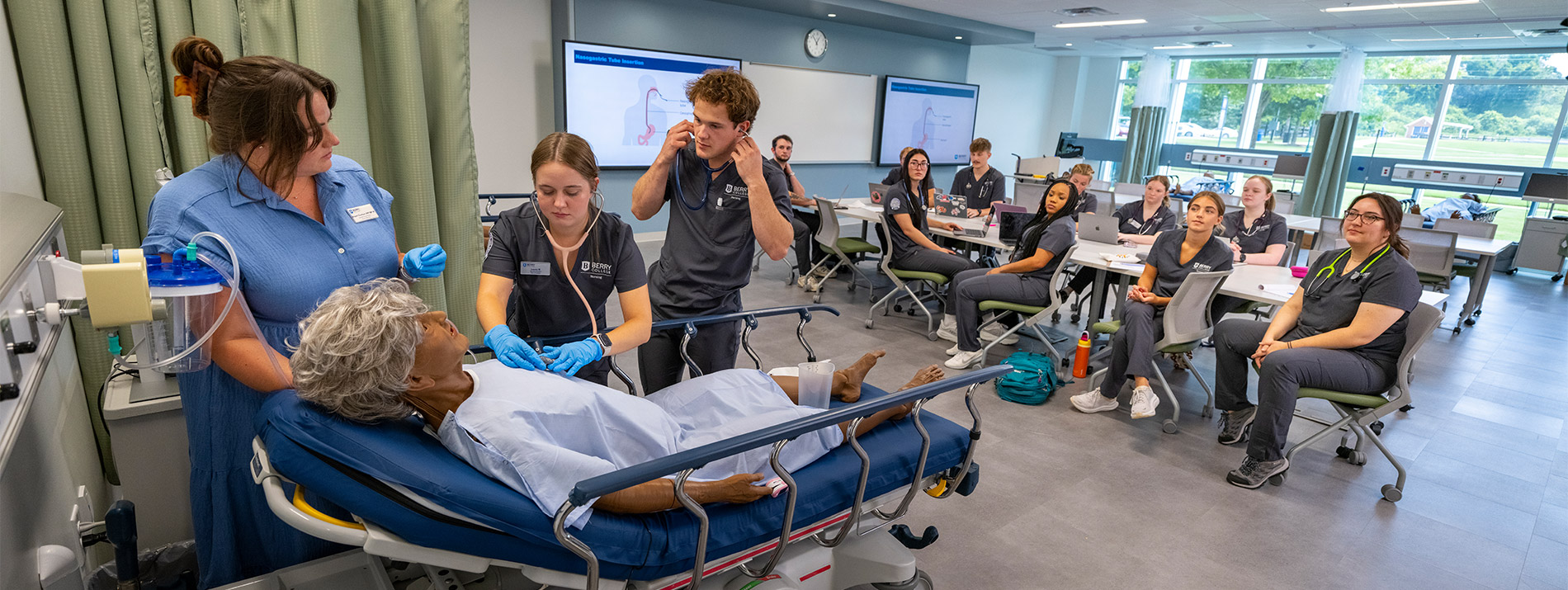Person-centered care requires a cultural change in communication, including a no-blame approach essential for providing safe care and achieving goals and outcomes. Nurses must be committed to person-centered care that considers various political, social, economic, cultural, religious/spiritual, technological and historical issues influencing health care. Principles of compassion, respect for others, altruism, social justice, free will, veracity and protection from harm are fundamental to nursing.
Left Nav
The Division of Nursing faculty at Berry College supports the college’s mission and educational principles. By emphasizing high academic standards based on interdenominational Christian values within a caring community, students develop professional competence and acquire the knowledge, skills and attitudes necessary for professional nursing roles. Berry College and the Division of Nursing are dedicated to meeting the intellectual, moral and material needs of students, fostering an environment of academic integrity and mutual respect.
Nursing is both an art and a science, grounded in liberal arts education. Critical thinking, clinical reasoning, communication, problem-solving and decision-making are essential for nurses to meet the health care challenges of the twenty-first century. Competent nursing practice requires the ability to provide safe and effective care to individuals, families, groups, communities and populations. Person-centered care demands awareness and non-judgmental acceptance of diversity, allowing nurses to practice with compassion and respect for the inherent dignity and worth of every individual.
Nurses assume roles as providers of care, managers of care, members of the profession and leaders of interdisciplinary teams. They are responsible for coordinating and managing nursing care, collaborating with other health team members and being aware of socio-political-economic factors affecting health care delivery. The Division of Nursing believes students must acquire the knowledge, skills and attitudes defined by the American Association of Colleges of Nursing (AACN) and the American Nurses Association (ANA) Code of Ethics.

Safe, quality care that minimizes harm and mitigates error depends on collegiality, open communication, mutual respect and skills in collaboration, negotiation and conflict resolution. Nurses must integrate critical thinking, clinical reasoning, problem-solving, decision-making and evidence-based practice while incorporating patient preferences to deliver optimal, safe health care and improve outcomes. Proficiency in technology, informatics, economics and genetic information is key to improving health care quality locally and globally.
Faculty are responsible for designing, implementing and evaluating a curriculum that helps students acquire the knowledge, skills and attitudes necessary for professional nursing. Nursing is best taught in a caring, learner-centered academic environment. Faculty facilitate learning, encourage student control and value their needs. They utilize evidence-based teaching strategies to enhance learning and meet educational outcomes. Nursing education demands attention to classroom activities, virtual and simulated activities and clinical learning opportunities. Faculty must understand and use technology and informatics to enhance teaching, monitor quality and manage data.
To ensure the curriculum remains current, faculty must consult best practices, national standards and health care priorities. They work with local, national and global health care providers to select and evaluate clinical learning experiences in various settings. Faculty evaluate the effectiveness of the curriculum by collecting and analyzing data and assessing educational outcomes.

The faculty values collaboration with Berry College’s core faculty to provide a balanced education in the sciences, arts and humanities. They share the responsibility of creating a learning environment that embraces Berry’s motto, “Not to be ministered unto, but to minister.”
